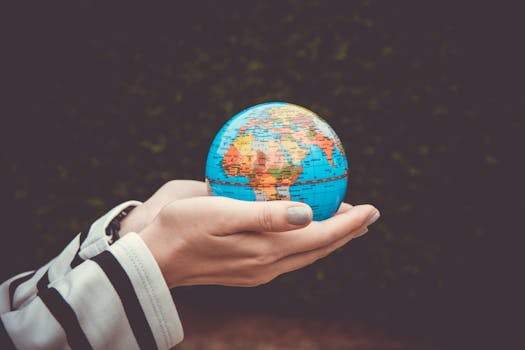
Cultural Shifts and Societal Trends Leading to 2025
Introduction to Cultural Shifts and Societal Trends
Cultural shifts and societal trends are transforming the world as we know it. As we approach 2025, it’s essential to understand the major changes that will shape the future. Cultural Shifts refer to the significant changes in societal values, norms, and behaviors, while societal trends refer to the patterns and directions of change in society. In this article, we will explore the major cultural shifts and societal trends leading to 2025.
Demographic Changes and Cultural Diversity
The world’s population is becoming increasingly diverse, with significant demographic changes expected by 2025. The United Nations predicts that the global population will reach 8.1 billion by 2025, with a significant increase in the population of Africa and Asia. This demographic shift will lead to increased cultural diversity, with more people from different ethnic and cultural backgrounds interacting and influencing each other.
Cultural diversity will become a major driver of innovation, creativity, and economic growth. Companies and organizations will need to adapt to these changes by becoming more inclusive and diverse, providing products and services that cater to different cultural needs and preferences.
Technological Advances and Digital Transformation
Technological advances are transforming the way we live, work, and interact with each other. The rise of artificial intelligence, blockchain, and the Internet of Things (IoT) will continue to shape the future. By 2025, we can expect significant advancements in areas such as:
- Artificial intelligence: AI will become more prevalent in our daily lives, with applications in healthcare, education, and customer service.
- Blockchain: Blockchain technology will become more widespread, enabling secure and transparent transactions, and providing a platform for decentralized applications.
- Internet of Things (IoT): The IoT will continue to grow, connecting more devices and enabling greater automation and efficiency in industries such as manufacturing, transportation, and energy.
Digital transformation will also continue to disrupt traditional industries, such as banking, healthcare, and education. Companies will need to adapt to these changes by investing in digital technologies, and developing strategies to remain competitive in a rapidly changing environment.
Sustainability and Environmental Awareness
Sustainability and environmental awareness are becoming increasingly important, with growing concerns about climate change, pollution, and resource depletion. By 2025, we can expect:
- Renewable energy: Renewable energy sources, such as solar and wind power, will become more prevalent, reducing our reliance on fossil fuels and mitigating climate change.
- Sustainable practices: Companies and individuals will adopt more sustainable practices, such as reducing waste, conserving water, and promoting eco-friendly products.
- Climate action: Governments and organizations will take more decisive action to address climate change, including implementing policies to reduce greenhouse gas emissions and promote sustainable development.
Sustainability will become a key driver of business decision-making, with companies recognizing the importance of environmental and social responsibility. Consumers will also play a critical role, demanding more sustainable products and services, and holding companies accountable for their environmental impact.
Conclusion and Future Outlook
In conclusion, the world is experiencing significant cultural shifts and societal trends that will shape the future. Demographic changes, technological advances, and sustainability will be major drivers of change, leading to increased cultural diversity, digital transformation, and environmental awareness. As we approach 2025, it’s essential to understand these trends and adapt to the changing environment. By doing so, we can create a more inclusive, sustainable, and prosperous future for all.





